Photo: Vince Bucci/AFP via Getty Images
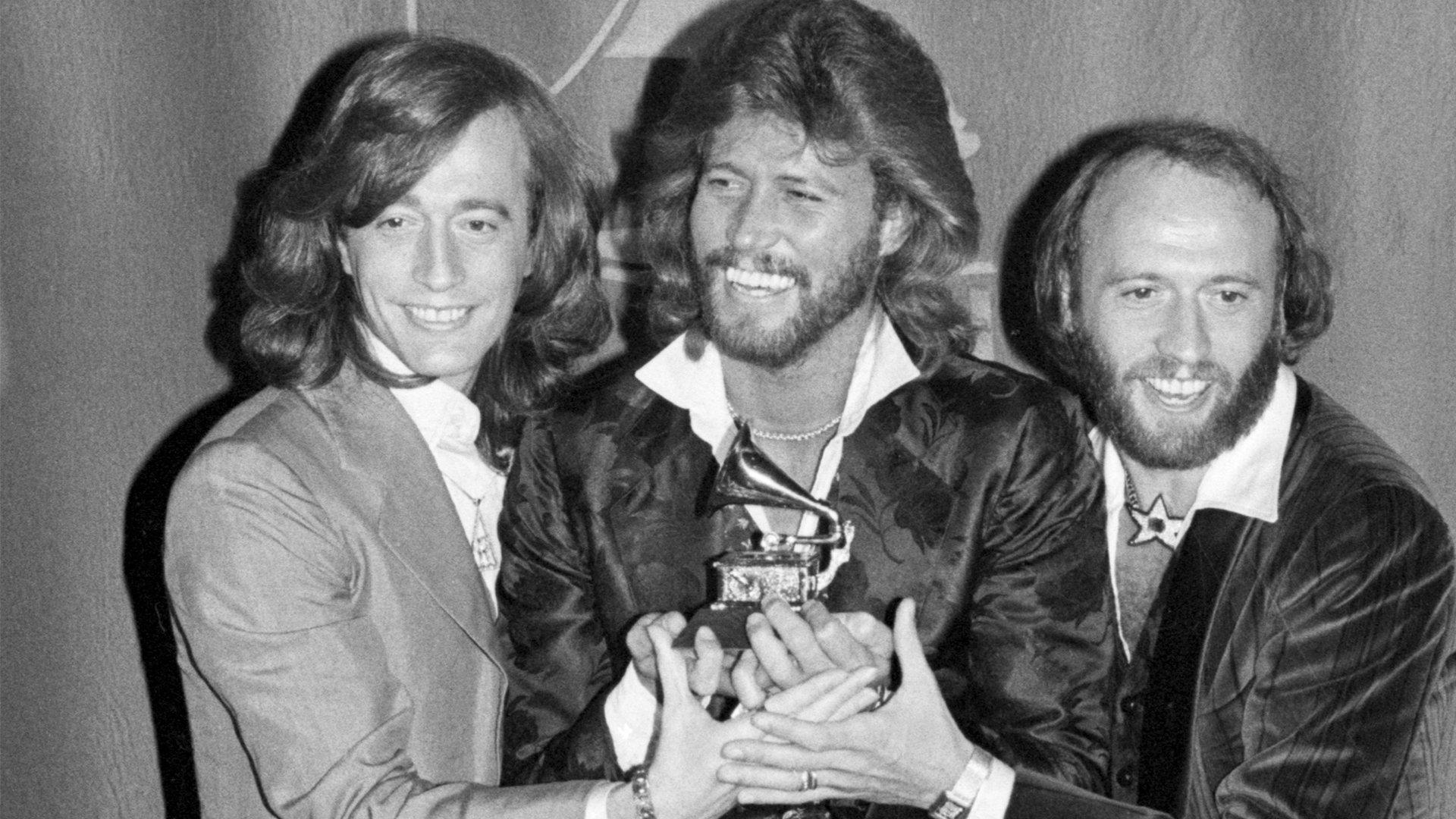
Rob Thomas And Carlos Santana
news
GRAMMY Rewind: Watch Santana & Rob Thomas Self-Assuredly Win Record Of The Year For "Smooth" In 2000
In the newest episode of GRAMMY Rewind, watch Santana and Rob Thomas win Record Of The Year at the 42nd GRAMMY Awards for "Smooth," the unlikely smash-hit pairing of the classic rock legend and Matchbox Twenty leader
By all accounts, Santana's and Rob Thomas' 1999 megahit "Smooth" almost didn't happen. In its embryonic stages, Carlos Santana was skeptical of the tune; the AM-radio effect on Thomas's voice alone engendered its own smattering of arguments.
But in a quintessential lesson about why you should never, ever give up, "Smooth" became the second-biggest single of all time, second only to Chubby Checker's "The Twist." It also led to the 2000 GRAMMY Awards, where the unlikely pair won the GRAMMY for Record Of The Year.
In the newest episode of GRAMMY Rewind, revisit the moment 21 years ago when an unlikely gambit paid off in dividends, putting a feather in the cap of Matchbox Twenty's leader and landing a classic rocker back on the airwaves.
Check out the throwback GRAMMY moment above and click here to enjoy more episodes of GRAMMY Rewind.
Why Can't Anyone Get Woodstock Right? 15 Of The Original Fest's Performers Weigh In
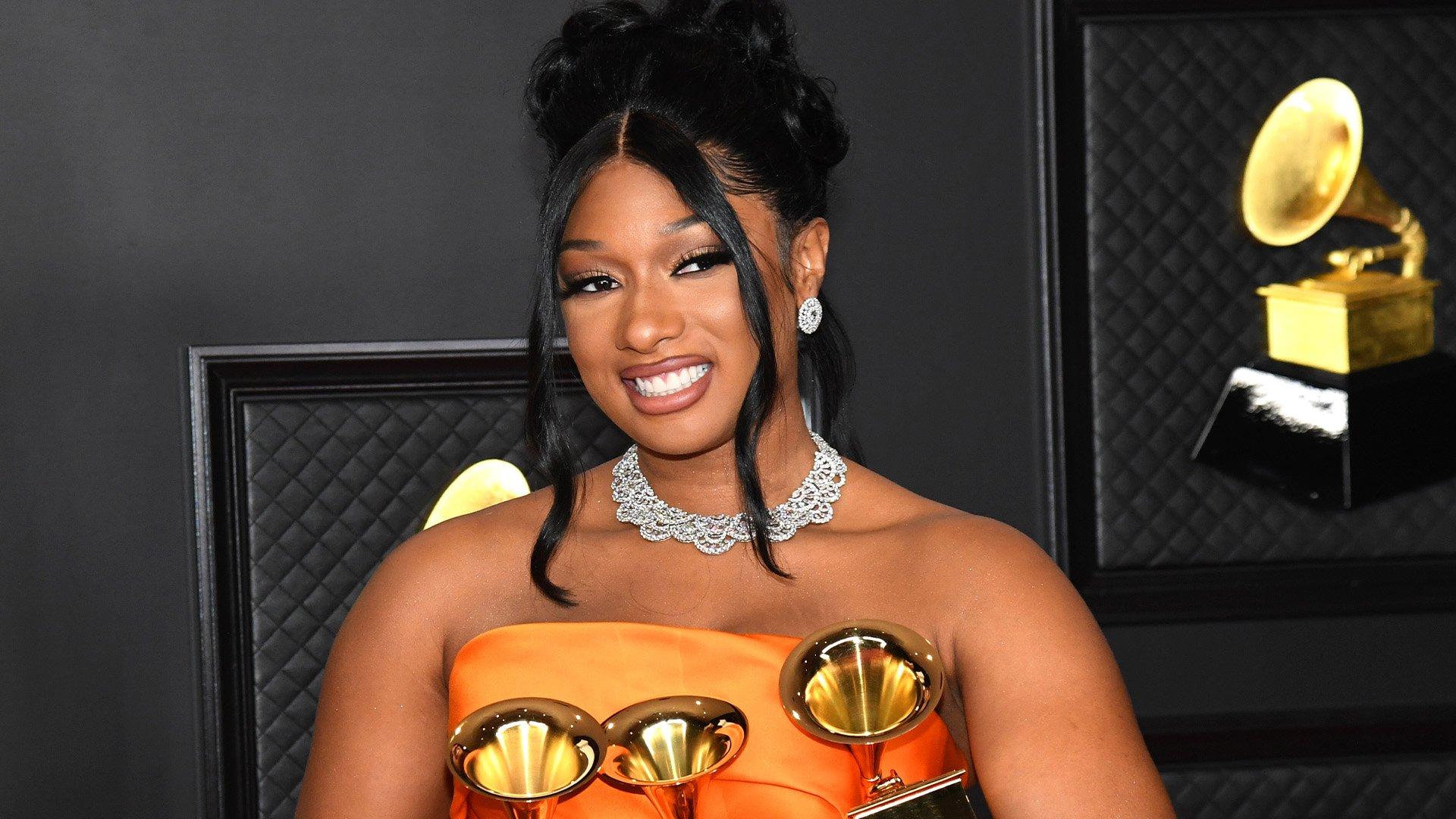
Photo: Kevin Mazur/Getty Images for The Recording Academy
video
GRAMMY Rewind: Megan Thee Stallion Went From "Savage" To Speechless After Winning Best New Artist In 2021
Relive the moment Megan Thee Stallion won the coveted Best New Artist honor at the 2021 GRAMMYs, where she took home three golden gramophones thanks in part to her chart-topping smash "Savage."
In 2020, Megan Thee Stallion solidified herself as one of rap's most promising new stars, thanks to her hit single "Savage." Not only was it her first No. 1 song on the Billboard Hot 100, but the "sassy, moody, nasty" single also helped Megan win three GRAMMYs in 2021.
In this episode of GRAMMY Rewind, revisit the sentimental moment the Houston "Hottie" accepted one of those golden gramophones, for Best New Artist.
"I don't want to cry," Megan Thee Stallion said after a speechless moment at the microphone. Before starting her praises, she gave a round of applause to her fellow nominees in the category, who she called "amazing."
Along with thanking God, she also acknowledged her manager, T. Farris, for "always being with me, being by my side"; her record label, 300 Entertainment, for "always believing in me, sticking by through my craziness"; and her mother, who "always believed I could do it."
Megan Thee Stallion's "Savage" remix with Beyoncé also helped her win Best Rap Song and Best Rap Performance that night — marking the first wins in the category by a female lead rapper.
Press play on the video above to watch Megan Thee Stallion's complete acceptance speech for Best New Artist at the 2021 GRAMMY Awards, and remember to check back to GRAMMY.com for more new episodes of GRAMMY Rewind.
Black Sounds Beautiful: How Megan Thee Stallion Turned Viral Fame Into A GRAMMY-Winning Rap Career
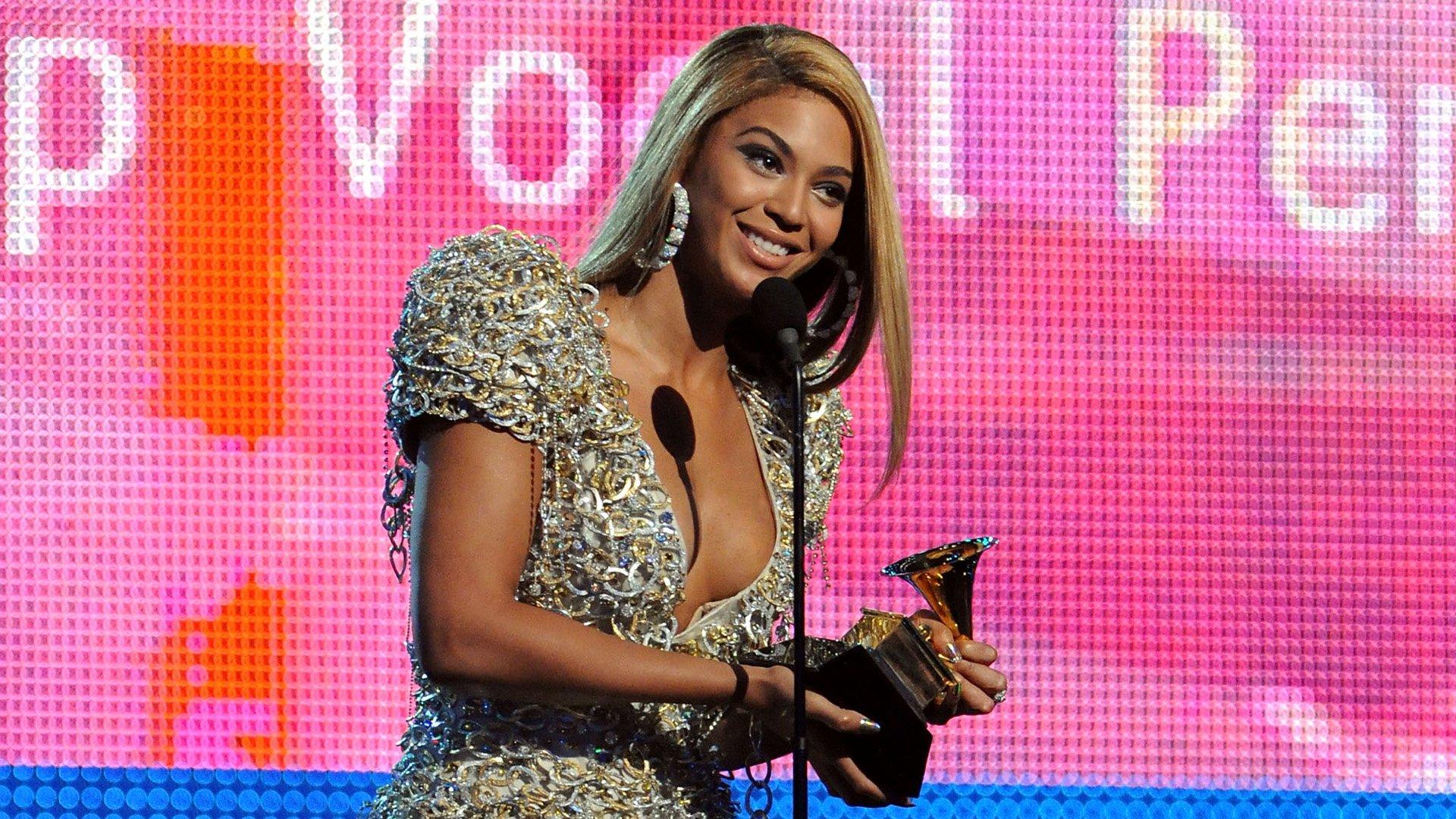
Photo: Jeff Kravitz/FilmMagic
video
GRAMMY Rewind: Watch Beyoncé Win A GRAMMY For "Halo" During Her Record-Setting Night In 2010
As you dive into Beyoncé's new album, 'COWBOY CARTER,' revisit the moment Queen Bey won a GRAMMY for "Halo," one of six golden gramophones she won in 2010.
Amongst Beyoncé's expansive catalog, "Halo" is easily one of her most iconic songs. Today, the 2009 single is her most-streamed song on Spotify; it was her first video to reach one billion views on YouTube; and it helped her set one of her GRAMMY records in 2010.
In this episode of GRAMMY Rewind, watch the superstar take the stage to accept Best Female Pop Vocal Performance for "Halo" in 2010 — the year she became the first female artist to win six GRAMMYs in one night.
"This has been such an amazing night for me, and I'd love to thank the GRAMMYs," she said, admitting she was nervous before taking a deep breath.
Before leaving the stage, Beyoncé took a second to thank two more special groups: "I'd love to thank my family for all of their support, including my husband. I love you. And I'd like to thank all of my fans for their support over the years."
The five other awards Beyoncé took home that night were for the coveted Song Of The Year ("Single Ladies (Put A Ring On It)") and four R&B Categories: Best Contemporary R&B Album (I Am... Sasha Fierce), Best R&B Song ("Single Ladies"), Best Female R&B Vocal Performance ("Single Ladies"), and Best Traditional R&B Vocal Performance (for her cover of Etta James' "At Last").
As of 2024, Beyoncé has won the most GRAMMY Awards in history with 32 wins.
Press play on the video above to relive Queen Bey's "Halo" win for Best Female Pop Vocal Performance, and check back to GRAMMY.com for more new episodes of GRAMMY Rewind.
Enter The World Of Beyoncé
Beyond Country: All The Genres Beyoncé Explores On 'Cowboy Carter'
Beyoncé Is The Genre-Bending Queen On 'Cowboy Carter': 5 Takeaways From Her New Album
Beyoncé's New Album 'Cowboy Carter' Is Here: Check Out The Featured Artists, Cover Songs, And Tracklist
Everything We Know About Beyoncé's New Album, 'Cowboy Carter': Two New Singles, Tracklist, A Shift To Country & More
How Beyoncé Is Honoring Black Music History With 'Cowboy Carter,' "Texas Hold Em," 'Renaissance' & More
Songbook: The Complete Guide To The Albums, Visuals & Performances That Made Beyoncé A Cultural Force
A Timeline Of Beyoncé's GRAMMY Moments, From Her First Win With Destiny's Child to Making History With 'Renaissance'
How Many GRAMMYs Has Beyoncé Won? 10 Questions About The 'Renaissance' Singer Answered

Watch Beyoncé Make GRAMMY History With Her 32nd Win In 2023 | GRAMMY Rewind
6 Takeaways From 'Renaissance: A Film By Beyoncé'
Beyoncé's 'Dangerously In Love' Turns 20: How The Solo Debut Foreshadowed The Singer's Icon Status
5 Takeaways From Beyoncé's New Album 'Renaissance'

How Beyoncé Has Empowered The Black Community Across Her Music And Art | Black Sounds Beautiful

The Creative Rebirth Of Beyoncé On '4' | For The Record
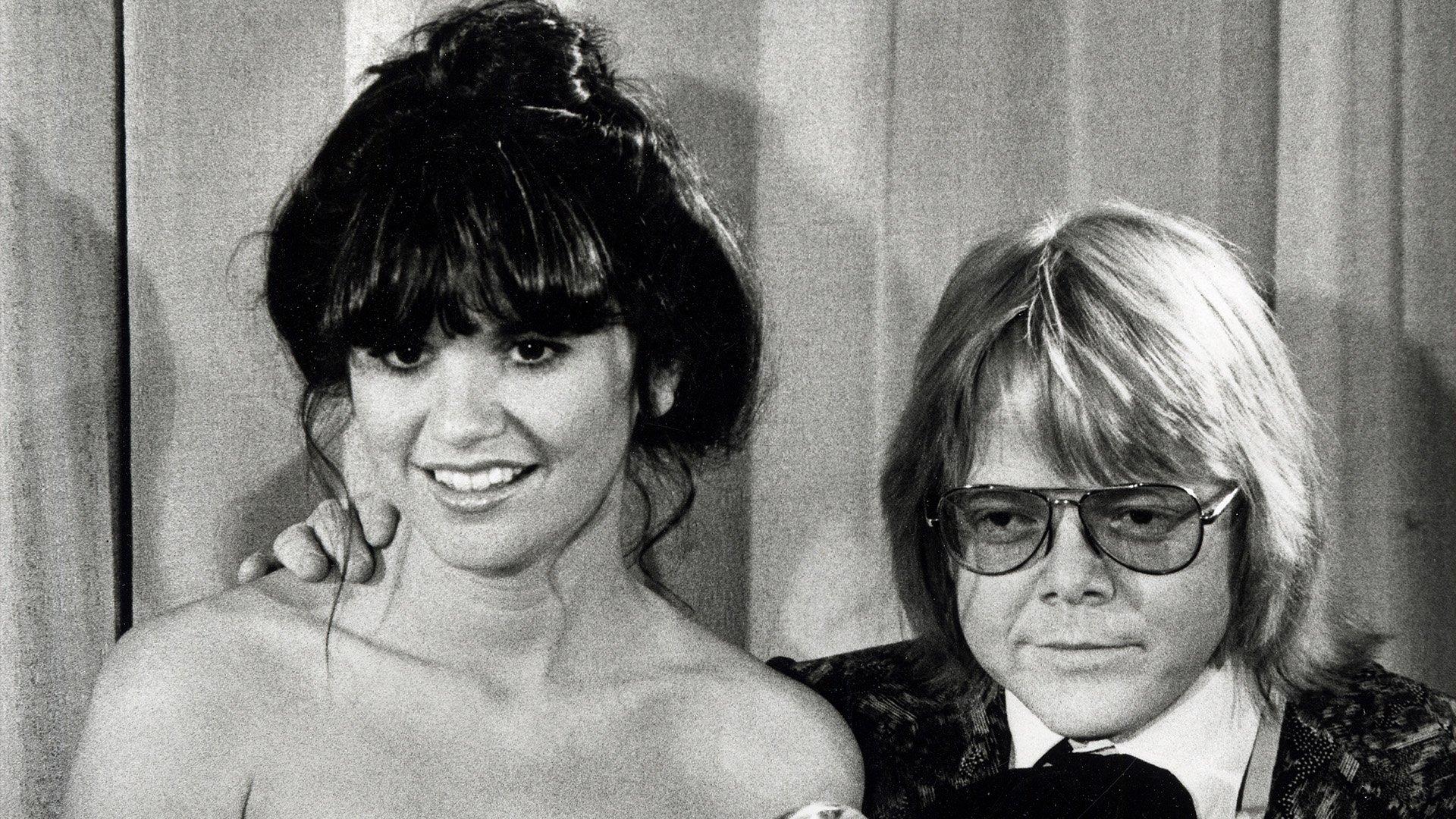
Photo: Ron Galella/Ron Galella Collection via Getty Images
video
GRAMMY Rewind: Watch Linda Ronstadt's Sweet & Simple Acceptance Speech In 1977
When Linda Ronstadt won a GRAMMY for Best Female Pop Vocal Performance — for her seventh album, 'Hasten Down the Wind' — she only had one special person in mind: her producer, Peter Asher.
With Hasten Down the Wind, Linda Ronstadt became the first female artist with three million-selling albums in a row — and furthered her legacy as one of the pioneers of women in rock music.
The album also helped Ronstadt snag her second GRAMMY, as it won Best Female Pop Vocal Performance in 1977. (The year prior, she took home Best Female Country Vocal Performance for her cover of Hank Williams' "I Can't Help It (If I'm Still in Love With You).")
In this episode of GRAMMY Rewind, relive the moment Linda Ronstadt won Best Female Pop Vocal Performance for Hasten Down the Wind in 1977.
Ronstadt kept her acceptance speech short and sweet: "I'd especially like to thank Peter Asher," the producer of the pop rock LP. "Thank you," she added with a smile.
To date, Ronstadt has won 11 GRAMMYs and received 27 nominations. In 2011 and 2016, respectively, she received a Latin GRAMMY Lifetime Achievement Award and a GRAMMY Lifetime Achievement Award.
Press play on the video above to watch Linda Ronstadt take the stage to accept Best Pop Vocal Performance at the 19th Annual GRAMMY Awards and remember to keep checking back to GRAMMY.com for more new episodes of GRAMMY Rewind.
5 Songs To Get Into Kim Gordon's Solo Work, From "Change My Brain" To "I'm A Man"
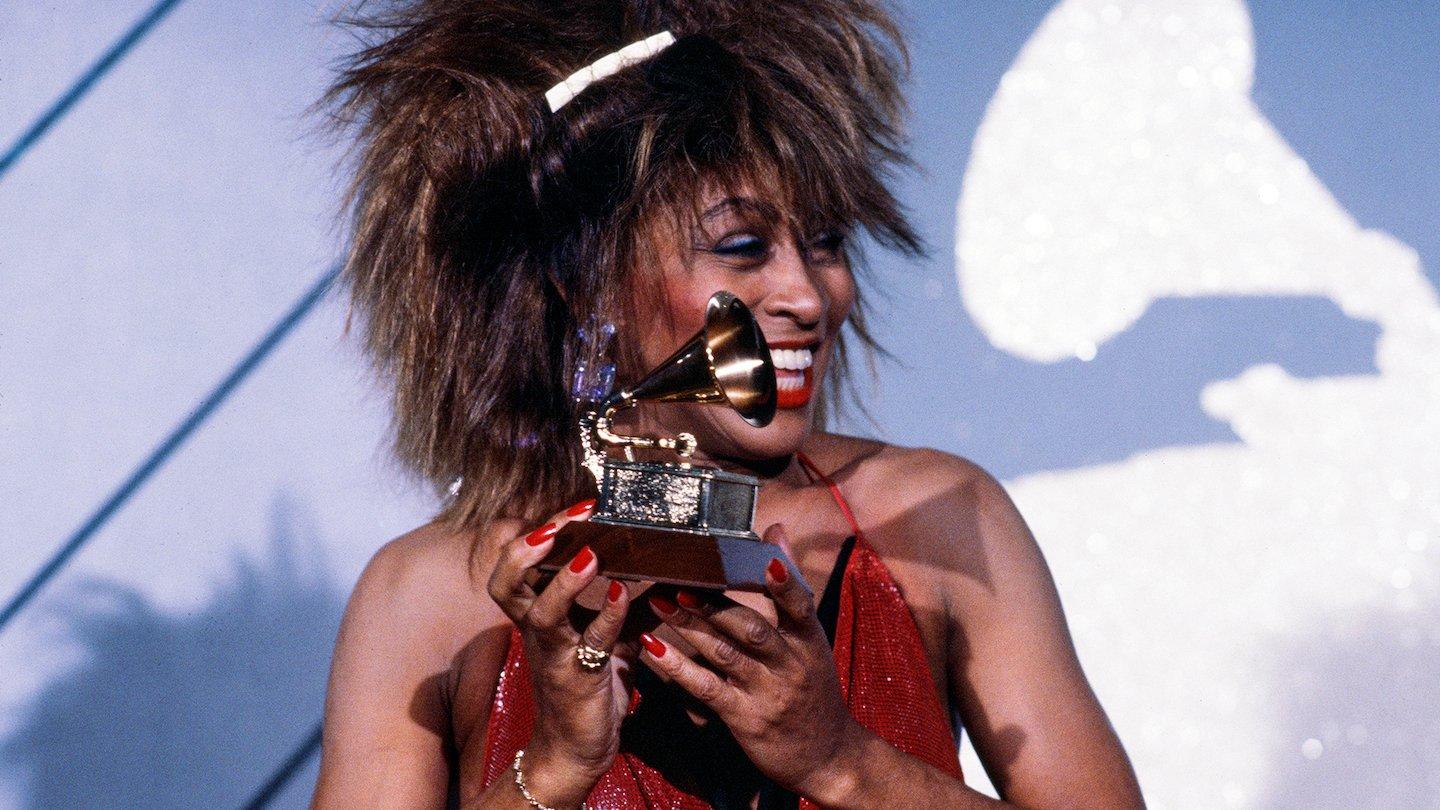
Photo: CBS via Getty Images
video
GRAMMY Rewind: Watch Tina Turner Win Her First Solo GRAMMY In 1985 For "What's Love Got To Do With It?"
Relive the moment Tina Turner won a golden gramophone for Best Pop Vocal Performance, Female — an opportunity she had been waiting for "for such a long time."
During her remarkable 83 years of life, the late Tina Turner received eight GRAMMY awards, a GRAMMY Lifetime Achievement Award, and three introductions into the GRAMMY Hall of Fame.
In this episode of GRAMMY Rewind, we travel to 1985, when Turner won a golden gramophone for one of her many iconic hits, "What's Love Got to Do with It?," in the Best Pop Vocal Performance, Female, category.
"I've been waiting for this opportunity for such a long time," she said in her acceptance speech. "I have to thank many people. And all of you that I don't get to thank, you must know that it's in my mind."
Among those "many people," Turner praised Graham Lyle and Terry Britten, who wrote the track; John Carter, her A&R "who played a wonderful part" in relaunching her career with Capitol Records in the '80s; and Roger Davies, her manager, "a great man who has done a great job with her career."
Later that night, "What's Love Got To Do With It?" helped Turner win Record Of The Year; she also took home Best Rock Vocal Performance, Female, for "Better Be Good to Me." Though the 1985 ceremony marked Turner's first solo awards, she first won a GRAMMY in 1972 alongside her ex-husband, Ike Turner, for their recording of "Proud Mary."
Press play on the video above to watch Tina Turner's full acceptance speech for Best Pop Vocal Performance, Female, and remember to check back to GRAMMY.com for more new episodes of GRAMMY Rewind.
